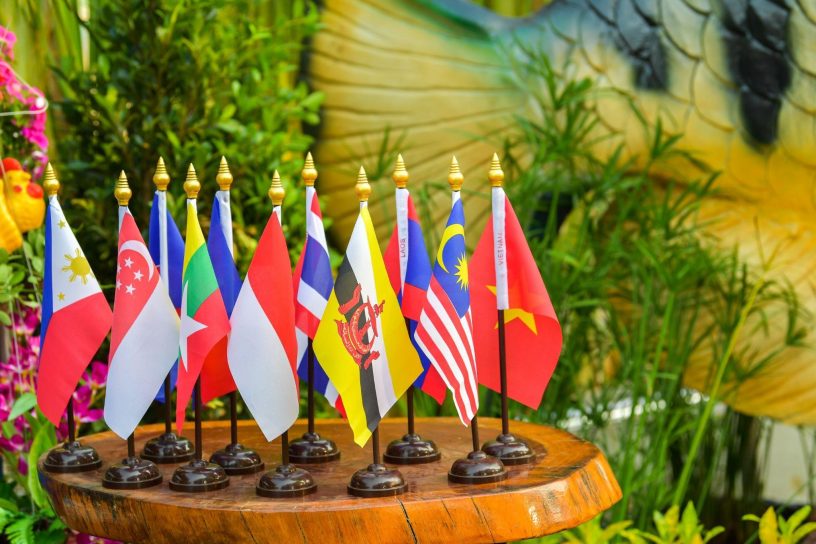
In this research paper, the scholars have detailed the problems that arise due to lack of clarity in the nomenclatures used in ASEAN agreements and potential solutions.
Authors
Harsh Mahaseth, Assistant Lecturer, Jindal Global Law School, O.P. Jindal Global University; and Research Analyst, Nehginpao Kipgen Center for Southeast Asian Studies, Jindal School of International Affairs, O.P. Jindal Global University, Sonipat, Haryana, India
Karthik Subramaniam, Undergraduate Student, NALSAR University of Law, Hyderabad, Telangana, India
Summary
The Association of Southeast Asian Nations (ASEAN) is a regional intergovernmental organization which was established on 8th August, 1967 in Bangkok, Thailand, with the signing of the ASEAN Declaration by its founding fathers: Malaysia, Thailand, Indonesia, Singapore and Philippines. ASEAN has gradually attempted to assert itself as a diplomatic force to reckon with and it has made remarkable progress toward economic integration and free trade in the region. However, over the recent past, ASEAN’s credibility has been dealt a huge blow due to its inability in dealing with regional issues.
One of the major challenges that ASEAN has faced is the issue of enforcement of ASEAN Agreements. In this research paper, Harsh Mahaseth, Assistant Lecturer at Jindal Global Law School in Sonipat, Haryana and Karthik Subramaniam, an undergraduate student at NALSAR University of Law in Hyderabad, argue that lack of clarity in the ASEAN Agreements has made their enforcement difficult.
Mahaseth and Subramaniam found that the variety that exists in the labels or nomenclature used in ASEAN instruments make it hard to locate all the instruments.
“The second problem lies in the fact that none of the nomenclatures used are officially defined in any of the ASEAN instruments,” they wrote.
In conclusion, the paper provides a few solutions and recommendations that could be adopted by the ASEAN community of nations to establish themselves as an economic community.
Analysing all the issues faced by ASEAN in strengthening the organisation, the researchers suggest that ASEAN should consider adopting a more “consistent, streamlined typology” for its instruments, reducing the number of various nomenclatures.
Nomenclatures that are overlapping in substance such as “agreements”, “conventions” and “treaties” can be narrowed down into “agreements” alone, so as to avoid confusion, the researchers said.
“Nomenclature used has to be narrowed down and streamlined to avoid multiple terms having similar interpretations. This would not only ensure a lack of confusion but would also provide clarity and precision with respected to the intended meanings of such terms. A mere provision of precise definitions to these terms would also be a step towards reaching such uniformity,” the researchers wrote.
Published in: International and Comparative Law Review Volume 21 (2021): Issue 1 (June 2021)
To read the full research paper, please click here


